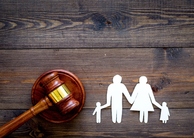How to Explain the Millennial Generation? Understand the Context
By
2014, Vol. 6 No. 03 | pg. 3/3 | « Now that millennials have started their own families, it is believed that many will re-strengthen the American family that has been on the decline for decades. Nimon argues millennials “are seeking and finding lasting relationships” while Howe explains that reemergence of multigenerational families is arising (Nimon, 2007, p. 27). Howe says, “Family is going to continue to strengthen … People are going to find new purposes for all the extra rooms in their oversized houses” (Galland, 2009). Howe then goes on to explain that, with the current economic situation, the nuclear family living within one household could solve many economic problems. It is only logical that millennials will re-strengthen the family unit because they were the first generation to grow up with entirely fractured families: mothers, fathers, and grandparents in separate houses, miles apart. This “turning” toward stronger families can be viewed as an attempt to correct the mistakes of past generations. Generation X was the first generation to make divorce common in the United States and, according to Strauss-Howe, this had such a profound effect on millennials continues into their adulthood. Outside of the millennial home and into the millennial education, this generation is going to school as recent generations have, but in greater numbers. According to Dr. Mary Donohue, millennials are the most educated generation in American history. However, what is surprising is that millennials learn differently from past generations: they crave interactions and simulations rather than the traditional lecture style of education (Donohue, 2013). This “turning” has come from what the past generation provided to us: technology. With technology, people read and write texts, emails, tweets, and blogs with the click of a button. Millennials are reading and not listening.After millennials finish high school and attend what has become mandatory university, they do what no recent generation has done before: they return home to live with their parents. For this reason, millennials have been called “lazy” and “entitled.” Other people say millennials are postponing childhood and therefore have earned the nickname “perma-children.” Following university, millennials have struggled to find jobs and pay off their hefty debts whereas past generations could graduate high school or college and find a job that would support a healthy middle-class lifestyle. However, from 1996 to 2006, the cost of college doubled while the economy faltered (Thompson, 2013). In the past the cost of education was affordable that through a part-time job during the school year and a summer job, most graduates left school with no debt. But today attending college means, for the average student, taking on tens of thousands of dollars in student loans. The Millennial Generation is expected to do what their parents did – have a house and family right out of college – even though the economic realities have changed drastically. Having completed their education and graduated into the work force, many employers are not pleased with a changing work ethic among millennials. Compared to past generations, millennials seem less dedicated. In his paper Understanding Generation Y, McCrindle describes this phenomenon: "The young people of this generation do not live to work – but rather work to live. A job merely provides the income to do that they want to do” (McCrindle, 2007, p. 4). From a young age, millennials watched their parents work extremely hard and receive little in return: they were unhappy, tired, and over-worked. This drastic “turning” can be traced back generations to the GI Generation who fought in World War II. Since then, their children and grandchildren benefited from hard work: a family with a house, car, and television. Once the economy began to change, millennials saw that hard work was no longer produced meaningful results. Millennials observed this trend and unconsciously decided that their parent’s experience would not be theirs. Unlike recent generations, millennials do not trust companies, celebrities, or politicians and these three entities also have a hard time connecting to millennials. The traditional commercials and advertisements are no longer effective because millennials “have become cynical about companies trying to manipulate them” (Nimon, 2007, p. 32). This is why the Millennial Generation has been nicknamed the “screw you generation.” Donohue describes the trend of untrustworthiness by looking at “what happened when [millennials] were coming of age… presidents, prime ministers, countless business executives and maybe a few sports heroes all lied and very few were punished” (Donohue, 2012). The Millennial Generation lost much of the trust they had in businesses, celebrities, and politicians when each disappointed them in turn. They also saw the consequences of past generations that placed too much trust in such entities. It is therefore unlikely that there will be another John F. Kennedy that the entire country loves and adores. Politicians are not trusted. The Watergate Scandal ruined the reputation of the President. Furthermore, Nixon was pardoned and received no punishment. OJ Simpson was acquitted of murder and while the banks failed in 2008, the CEOs still received multi-million dollar bonuses. Now, millennials strive to punish those who do wrong. Alex Rodriguez of the New York Yankees was suspended for using steroids; Lance Armstrong´s Tour de France titles were removed for the same; and John Edwards was virtually removed from politics after his affair was uncovered. The cynical Millennial Generation refuses to place all of their trust in one entity because they do not want to get screwed as their naïve parents and grandparents did. Both the generation that came first, and the major events of the day shape a generation. Although the millennial generation is often looked at with perplexity by its antecedents, we argue that we are changing the country – and the world – for the better. The internet offers millennials the opportunity to reveal the injustices of the world and to be constantly aware of them. The millennials are informed and politically active, often with the help of a computer screen. Millennials want to make up for the shortcomings of the previous generations, and like the generations prior, they will achieve in some aspects while failing in others before giving way to the next generation. ReferencesCoombes, B. (2009). Generation Y: Are they really digital natives or more like digital refugees? Synergy , 7 (1), 31-41. Donahue, Mary. (2012, Janurary 13). TEDxRyersonU – Dr. Mary Donohue – Millennials, McLuhan and slow dancing [Video file]. Retrieved from http://www.youtube.com/watch?v=f0PUrZQjVRw Galland, D. (2009, October 8). [Interview with N. Howe]. Casey Research, pp. 36-47. Henseler, C. (2012). Generation X goes global: Mapping a youth culture in motion. New York, NY: Routledge. Hess, Scott. (2011, June 10). TEDxSF – Scott Hess – Millennials: Who they are & why we hate them [Video file]. Retrieved from http://www.youtube.com/watch?v=P-enHH- r_FM Howe, N. & Strauss, W. (1997). The fourth turning: An American prophecy. New York, NY: Broadway Books. Howe, N. & Strauss, W. (1991). Generations: The history of America’s future,1584 to 2069. New York, NY: William Morrow & Company. Howe, N., & Strauss, W. (2003, June 14). Millennials go to college. Retrieved October 14, 2013, from Eubie: http://eubie.com/millennials.pdf Mannheim, K. (1927). The problem of generations. In P. Kecskementi (Ed.), Karl Mannheim: Essays (pp. 276-322). New York, NY: Routledge. McCrindle, M. (2007). Understanding generation Y. North Parramatta: Australian Leadership Foundation. Morrison, M. (2013, March 25). McDonald’s has a problem. Retrieved from http://adage.com/article/news/mcdonald-s-1-rank-millennials/240497/ Nimon, S. (2007). Generation Y and higher education: The other Y2K. Journal of Institutional Research, 13 (1), 21-41. Racine, K. (2013, September 11). We are the 9/11 generation. Retrieved from http://www.literallydarling.com/we-are-the-911-generation/. Stein, J. (2013). Millennials: The me me me generation. Time, 181(19), 26-32. Telefónica. (2013). Telefónica global millennial survey: Focus on US. Retrieved from http://survey.telefonica.com/wpcontent/uploads/2013/06/Telefonica_GMS _US_FACTSHEET.pdf Thompson, D. (2013). Millennials are the unluckiest generation. National Journal, 6-21. US Chamber of Commerce Foundation. (2012). The millennial generation. Retrieved from http://emerging.uschamber.com/MillennialsReport Walton, A. (2012, March 19). Millennials non-negotiables: Money, fame and image. Retrieved from http://www.forbes.com/sites/alicegwalton/2012/03/19/millennial- generations-non-negotiables-money-fame-and-image/ Suggested Reading from Inquiries Journal
Inquiries Journal provides undergraduate and graduate students around the world a platform for the wide dissemination of academic work over a range of core disciplines. Representing the work of students from hundreds of institutions around the globe, Inquiries Journal's large database of academic articles is completely free. Learn more | Blog | Submit Latest in Sociology |


















